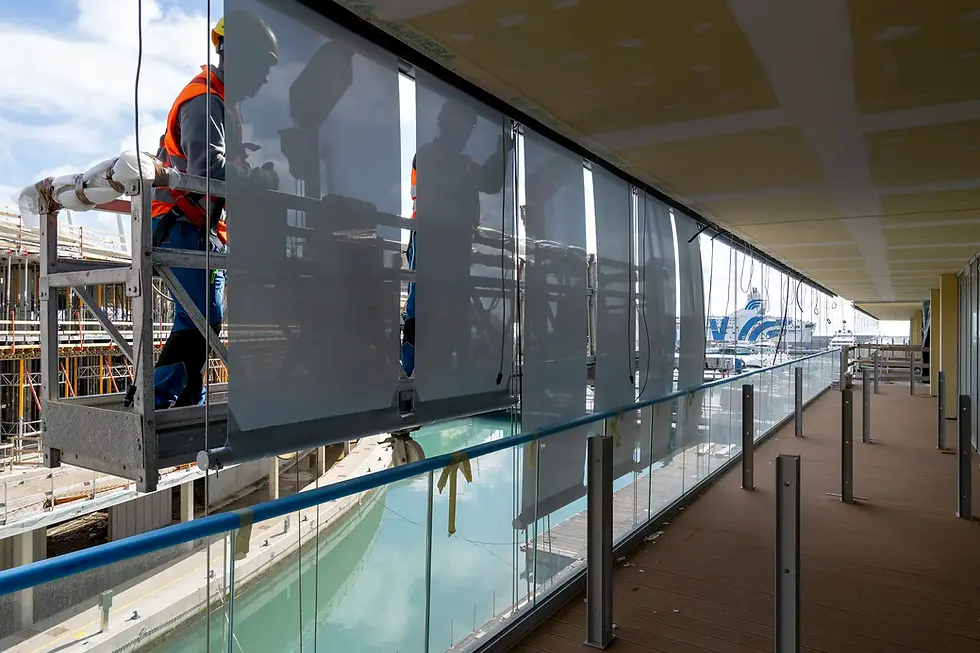Architecting with Light
- Neil Gordon
- Mar 10
- 2 min read
Why Engineered Shading Solutions Are Essential for Sustainable Design

Over the past several years, my business has dedicated itself to serving the architectural community, primarily through my popular Lunch and Learn programs. These hour-long presentations offer architects valuable health, safety, and welfare continuing education credits and introduce them to the innovative concept of engineered shading solutions.
Having conducted hundreds of these informative sessions, I’ve had the privilege of educating architects, designers, and specifiers about the evolving world of window coverings. Window coverings have advanced far beyond their traditional role as simple, decorative treatments. Today, they represent a strategically integrated solution crucial for sustainable buildings and interiors. Recognizing the evolution and complexity of modern shading systems, I coined the term "Engineered Shading Solutions" to encompass this comprehensive approach.
Engineered shading solutions are far more than just installing basic shades expecting superior performance. Instead, they must be integrated thoughtfully into the initial planning and facade design stages to effectively manage solar heat gain and glare from daylighting and regulate the amount of natural light entering interior spaces.
Given the significant impact these solutions have on architectural design and occupant comfort, I offer the following definition:
“Engineered Shading Solutions are sustainable systems for interior and exterior window coverings, which engage the latest technologies to control heat, glare, and light.”
By "Engineered," I mean the creative application of scientific principles in designing and developing shading structures specifically tailored to their intended purpose. "Shading Solutions" refer to carefully crafted answers addressing common architectural challenges, such as excessive solar heat gain, disruptive glare, and uneven lighting conditions. Together, these engineered shading solutions empower architects to deliver optimal results for occupant health, safety, and overall well-being.
What is an Engineered Shading Solution's true meaning and benefits, and what does it mean to call a system sustainable? How exactly do these engineered solutions, applicable for interior and exterior spaces, solve the persistent issues of solar heat gain and glare while expertly controlling natural light levels?
To understand the actual value of an Engineered Shading Solution, we must first unpack the meaning of sustainability within architectural design. A sustainable shading system goes beyond immediate functional benefits; it contributes significantly to long-term environmental responsibility and occupant well-being. Engineered Shading Solutions reduce energy consumption by minimizing reliance on artificial lighting, reducing heating and cooling loads, and thus decreasing overall carbon footprints. By carefully controlling natural light, these solutions enhance occupant comfort, improve productivity, and support healthier indoor environments.
Engineered Shading Solutions employ advanced technologies and design principles explicitly tailored to each building’s unique conditions and needs. For exterior applications, innovative materials and automated controls respond dynamically to changing daylight conditions, reducing heat gain and preventing glare before sunlight reaches the building facade. For interior solutions, precise shading systems adjust based on the occupants' needs, managing daylight penetration effectively and creating comfortable, well-lit indoor spaces.
Ultimately, the adoption of Engineered Shading Solutions represents a crucial step forward in achieving truly sustainable architecture, elevating building performance, and enhancing the health and experience of its occupants.






Comments